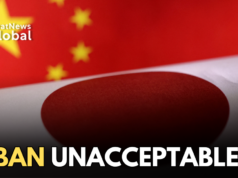In this exclusive interview on Global Compass, Ambassador Arun Kumar Singh, who served as India’s ambassador to Israel from 2005 to 2008, offers a comprehensive analysis of the ongoing conflict between Israel and its adversaries, shedding light on the international political pressures mounting against Israel and the country’s strategic responses. He delves into the psychological and existential factors driving Israel’s military actions, despite the growing international condemnation and financial pressures.
The critical role of the United States in this complex geopolitical scenario is also analysed, highlighting the internal political dynamics within the US and their impact on President Biden’s administration. Arun Singh provides insights into how the conflict influences domestic politics in both Israel and the US, and the potential implications for upcoming elections.
Addressing the international community’s reaction to Israel’s actions, including diplomatic repercussions and the broader geopolitical landscape, he also explores the challenges of finding a sustainable solution to the conflict, the prospects for peace, and the future of Israeli-Palestinian relations.
He reminds us that in 1982, Israel invaded southern Lebanon with the objective of driving the Palestinian Liberation Organization (PLO) out of the region, which eventually forced the PLO to relocate to Tunisia. Despite achieving this immediate goal, Israel’s occupation of southern Lebanon continued for 18 years until 2000, leading to significant instability and the eventual rise of Hezbollah as a powerful militant organization. Ambassador Arun Singh highlights that this historical context underscores the difficulty of eradicating militant groups and achieving long-term peace and stability through military action alone.
Join us for a thought-provoking conversation that provides a deep understanding of one of the most pressing issues in international relations today.
Neelanjana Banerjee is a Broadcast Media Specialist with 23 years of cross-media experience in designing and producing content for television, radio and online media.
Having held a wide range of roles in various aspects of electronic media, she is a multifaceted professional and has an in-depth and hands on experience in broadcast
content, programming, media production, channel / product launch, TV and
radio skills training and online content.
Neelanjana was awarded the Chevening Gurukul fellowship in Leadership & Excellence from King's College, London in 2016.




